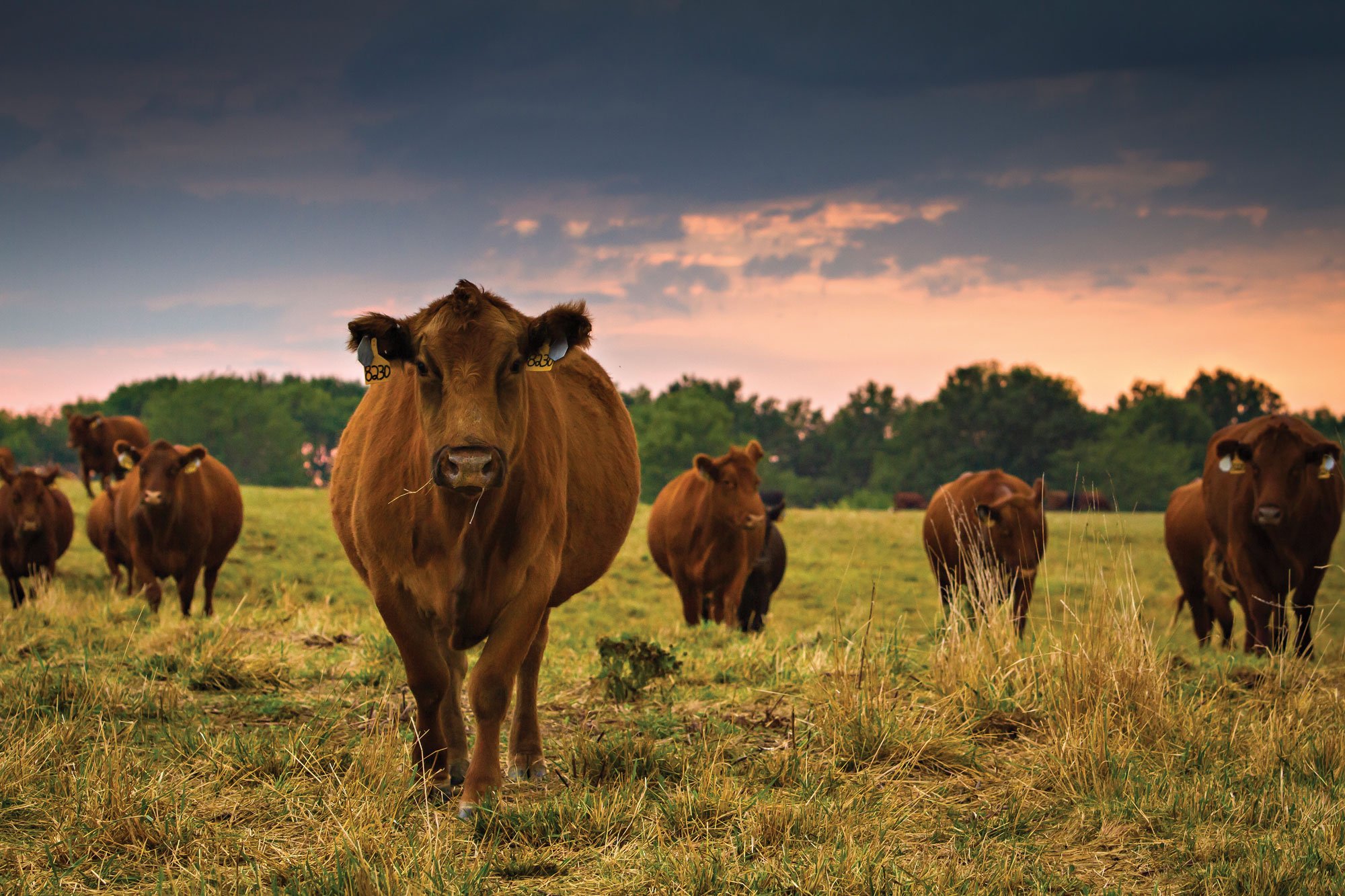
Feed Study Could Lead to More Efficient Cattle Breeds
November 4, 2017
Written By Lauren Quinn
A change is coming to the cattle seedstock industry. Breed associations have long been interested in finding the genetic basis for feed efficiency, with the aim of breeding more efficient animals. But the first step—accurately measuring how much cattle eat across different life stages and diet types—has been a missing piece. A new study from the University of Illinois helps fill the gap.
“Grain intake in the feedlot is relatively easy to measure and the industry now has a substantial number of feed intake records,” says Dan Shike, associate professor of beef cattle nutrition in the Department of Animal Sciences at the University of Illinois. “But forage intake while a cow is grazing is extremely difficult to measure. We need to get a handle on that to really capture feed efficiency for the entire beef production system.”
The concern relates to the fact that intake regulation varies depending on diet type. In other words, a cow can fill up on forages before meeting her basic nutritional requirements. The same cow being fed grain in a controlled setting like a feedlot will likely meet those requirements on less feed. However, feed intake evaluations are typically done in the feedlot, potentially misrepresenting the efficiency of the animal over her lifespan.
“Prior to our study, there were limited data evaluating the relationship of intake on a grain diet with intake on a forage diet,” Shike explains. “If they are related, we may be able to use the intake data we have from the feedlot to extrapolate throughout the cow’s life.”
Shike and a large team of collaborators from 11 institutions set out to determine if there was a relationship between feed efficiency in forage-fed cattle and in grain-fed cattle. Both heifers and steers were fed out of a GrowSafe system, which precisely tracks intake to individual animals. Heifers were fed forage during a growing period of 70 days, then switched to grain for a 70-day finishing period. Steers were fed grain for both periods. The team looked for relationships between dry matter intake and average daily gain in the two periods, and they found a strong correlation for both heifers and steers for dry matter intake.
“The study suggests that dry matter intake is repeatable across varying stages of maturity and diet types in cattle, and accurate feed efficiency measures can be obtained in either the growing or finishing period,” Shike says. “And our results show that measures of dry matter intake and feed intake in heifers are relevant, no matter what they were fed.”
The team also analyzed the data by breaking the intake evaluation period into smaller chunks. “We found that intake evaluation periods can be shortened from the standard 70 days,” he says. “We’re not suggesting going clear down to 7 or 14 days, but I think you could go from 70 to 42.” Some breed associations are already adopting a shorter feed intake evaluation period as a result of this and other work.
Having more information about feed intake can lead to a more economical operation. Raising more efficient animals can reduce feed waste and potentially increase profits.
“We, as a cattle industry, have gotten very good at tracking our outputs,” Shike says. “We know how they grow, what their carcass characteristics are, and we can predict those very well in the next generation. But we don’t have a good handle on the input; really just a handful of feed intake records existed prior to this project. Some breeds had no feed intake records.”
An animal’s feed intake is just one of the many traits that make up its phenotype, or outward appearance and behavior. The study provides more data on this trait across the lifespans of both steers and heifers.
The article, “Effects of timing and duration of test period and diet type on intake and feed efficiency of Charolais-sired cattle,” is published in the Journal of Animal Science. The project was supported by a USDA National Institute of Food and Agriculture grant, and the study’s authors include researchers from the National Program for Genetic Improvement of Feed Efficiency in Beef Cattle, as well as associated graduate students and staff.

